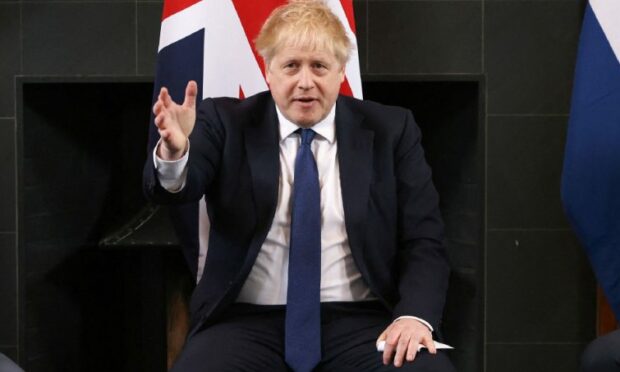Prices have surged again as global tensions over Russia’s supply of oil and gas heat up as the invasion of Ukraine continues.
Brent crude surged past $126 a barrel, as fears about availability of supply prompted speculation about how importers such as the US and UK might act in the face of Russian threats to cut off its pipelines.
Boris hints at North Sea production
The price rises prompted Prime Minister Boris Johnson to reveal he is preparing a new UK energy strategy, which could involve more North Sea oil and gas production.
Meanwhile it is thought UK ministers are looking at opening up the first new round of exploration licences since 2019.
Addressing a Downing Street press conference on Monday, he said it is “completely the right thing to do” to move away from dependence on Russian hydrocarbons.
He added: “We have got to make sure we have substitute supply. One of the things we are looking at is the possibility of using more of our own hydrocarbons . . . We need to increase our self-reliance.”
The UK takes about 4% of its total gas supply from Russia, but remains vulnerable to the hugely volatile price fluctuations seen as a result of the invasion of Ukraine.
Trade body said it was set to submit a response to the UK Government’s consultation on a proposed “climate compatibility checkpoint” for future oil and gas licensing in the UK which would look at ways of reducing need for imports.
US considers ban on Russian imports
The United States, the world’s biggest oil consumer, may move on its own to ban Russian oil imports.
However, Russia on Monday warned it could stop the flow of natural gas through pipelines from Russia to Germany.
If all of Russia’s oil exports were blocked from global markets, analysts have said prices could rise to $200 a barrel, while Russia’s deputy prime minister said oil could soar to more than $300.
Alexander Novak, Russia’s deputy prime minister, said his government had the “full right” to “impose an embargo” on gas supplies. He said the decision to shut off Nord Stream 1 has not yet been taken, and the pipeline is currently operating “at full capacity”.
Germany, the biggest buyer of Russian crude oil, has rejected plans for an energy embargo. Replacing the vast quantities of Russian fuel and oil in the market if they has raised supply concerns about oil traders, prompting the surge in prices.
Greenpeace – plan is ‘inadequate, wrongheaded and foolish’
Environmental campaigners criticised the UK prime minister’s announcement, claiming he was “stuck on the stale old approach of pushing hydrocarbon supplies” and argued increasing UK production would do little to bring down oil and gas prices.
Rosie Rogers, head of energy at Greenpeace UK, said: “New licences will take 28 years to start production, the gas won’t belong to the UK but to the companies who extract it, and it will be sold on global markets at the highest possible price.
“Meanwhile in the short term we’ll keep sending £6m per day to Putin in gas money, while British people’s bills continue to skyrocket.
“This plan is inadequate, wrongheaded and foolish.
“Johnson – and Sunak alike – seem completely disinterested in tackling energy demand. We need a race for renewables, heat pumps and home insulation to isolate Putin.”
